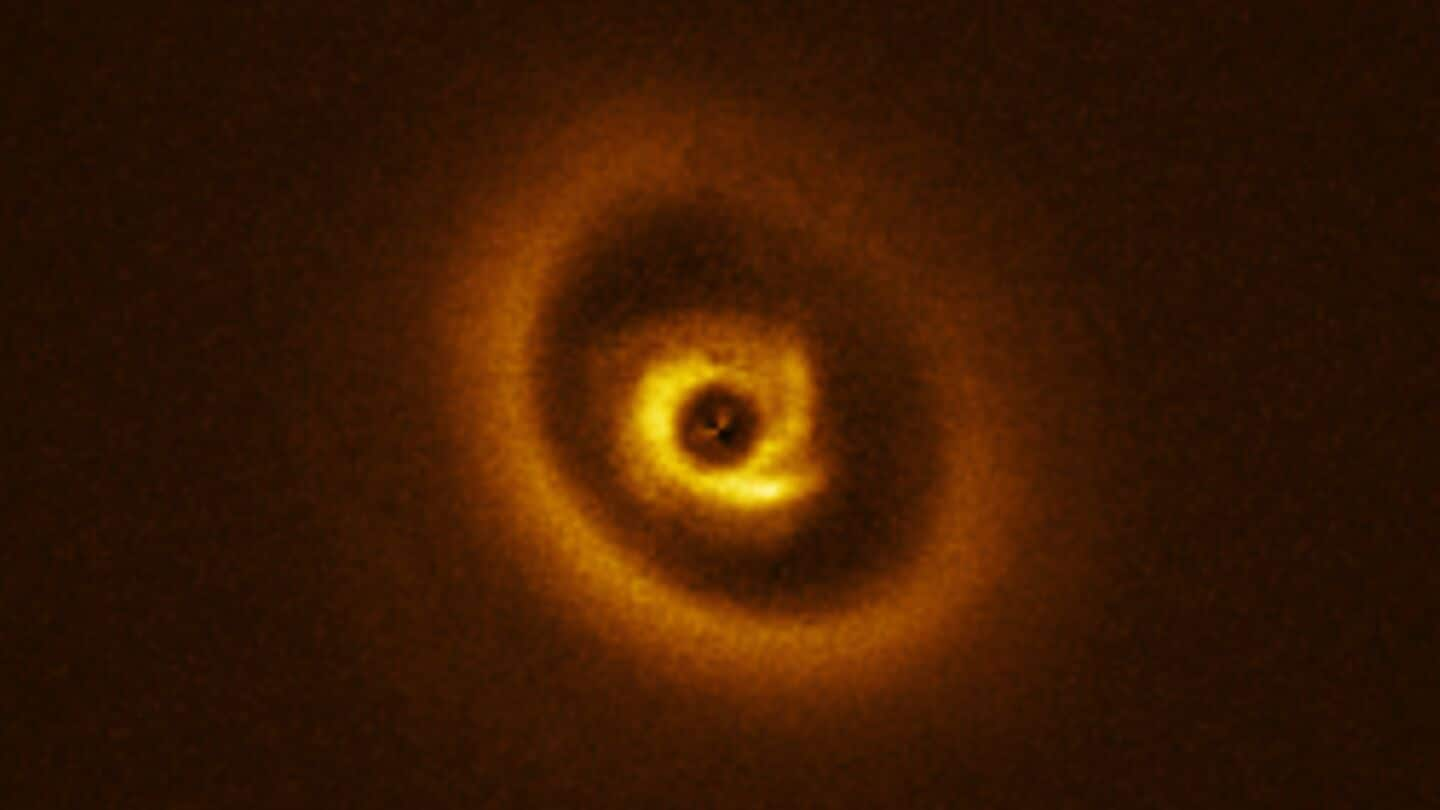
Watch: This 5M-year-old gas giant moves around a young star
What's the story
An international team of astronomers has made an unexpected discovery: a new planet in the early stages of formation. The planet, dubbed WISPIT 2b, was detected around a young star similar to our Sun and is thought to be about five million years old. It is likely a gas giant comparable in size to Jupiter. The groundbreaking discovery was made using the European Southern Observatory's Very Large Telescope (ESO's VLT) in Chile's Atacama Desert.
Observation details
Observed in near-infrared light
The planet was observed in near-infrared light, the kind of view one would get with night-vision goggles. This is because it is still glowing and hot from its initial formation phase. The team from Leiden University and the University of Galway managed to capture a remarkably clear image of the young proto-planet embedded in a disk gap, confirming that it orbits its host star.
Research background
Discovery part of 5-year observational study
WISPIT 2b was discovered as part of a five-year observational study that aimed to determine if wide-orbit gas giant planets are more common around younger or older stars. This research led to the discovery of the new planet. The disk surrounding the WISPIT 2b has a radius of 380 astronomical units, about 380 times the distance between Earth and the Sun.
Scientific implications
Findings published in Astrophysical Journal Letters
The discovery of WISPIT 2b, the first unambiguous planet detection in a multi-ringed disk, provides an ideal opportunity to study the interaction between planets and disks. It also sheds light on their subsequent evolution. The international team of astronomers was co-led by researchers from Leiden University, University of Galway, and University of Arizona. The findings were published in Astrophysical Journal Letters.